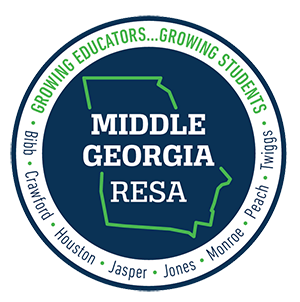Middle Georgia RESA’s Computer Science Endorsement is designed to prepare candidates to teach Computer Science for K-12 certification as outlined in Rule 505-3-.86 COMPUTER SCIENCE ENDORSEMENT PROGRAM. Each course is approximately 12 weeks in length. The Computer Science Endorsement is a three-course program:
Course 1: Computational Thinking and Programming Basics
Course 2: Computers for a Connected World
Course 3: Methods of Computer Science
Candidate admission to the MGRESA Endorsement Program requires the following:
- A valid, level 4 or higher Induction or Professional teaching certificate in any teaching, service, or leadership field is required for program admission.
- Candidates must register online under Course Registration for each course of the Computer Science Endorsement and follow the link to print the application for system approval.
Course Descriptions
This is a job-embedded program. Candidates must practice skills with students.
Course 1: Computational Thinking and Programming Basics
This course introduces critical thinking methods that lead to the development of well structured programs. Emphasis is placed on the fundamental building blocks of programming, including computational thinking skills, primitive data types, functions, basic data structures, and common algorithms. The software, code examples and code projects featured in this course will be presented primarily using a text-based third-generation programming language.
Course 2: Computers for a Connected World
This course will also introduce how computers work and interact on both big and small scales. First, the course covers the machine-level representation of data its abstraction to primitive data types. Next, we consider the role of a computer’s operating system in managing the computer’s data, memory, and computation cycles. Then, our view of computation is expanded to include many computers communicating via a network, including the client-server paradigm and various protocols used to pass data back and forth. Our definition of “computer” is expanded to include the various mobile devices we use on a daily basis.
Course 3: Methods of Computer Science
This course explores computer sciences as a discipline for all levels that encourages inquiry, creativity, and collaboration. Given that the nature of computing is investigative, the computer science activities will be hands-on to gain insights about teaching and learning computing concepts in classroom settings. Candidates will learn that pedagogical methods in computer science requires intellectual rigor in order to develop lessons that are relevant and pertinent to our culturally diverse world today.
